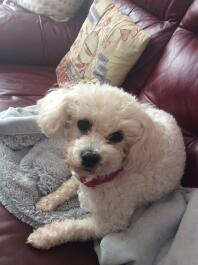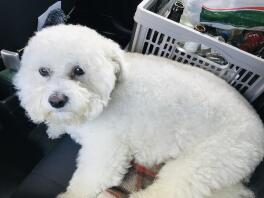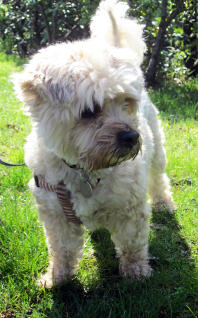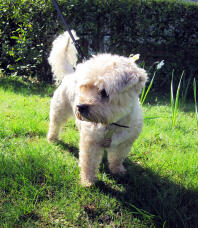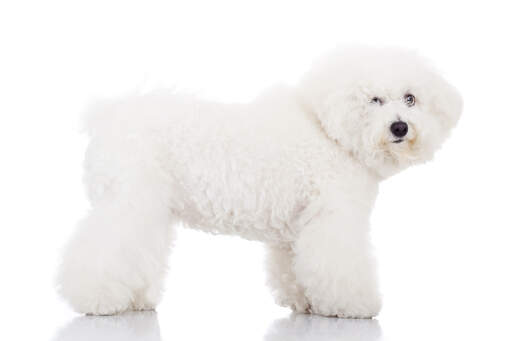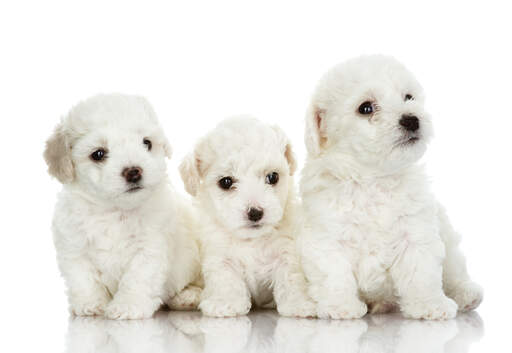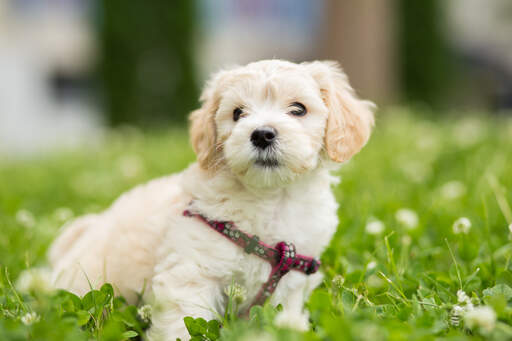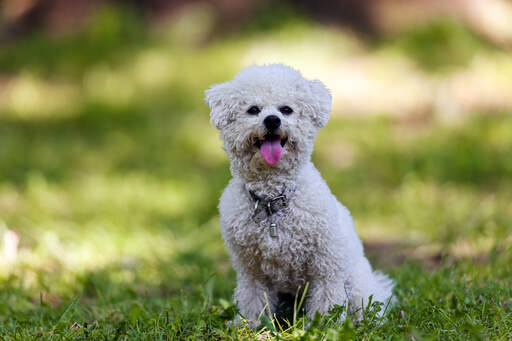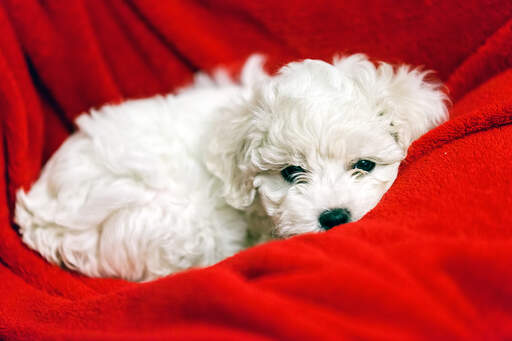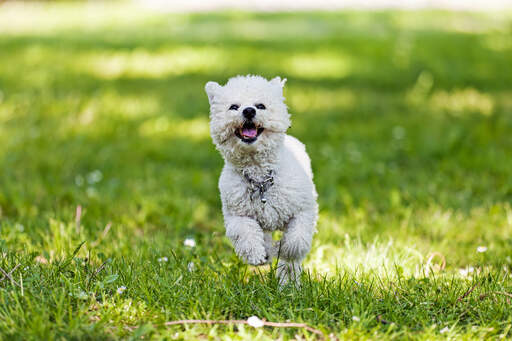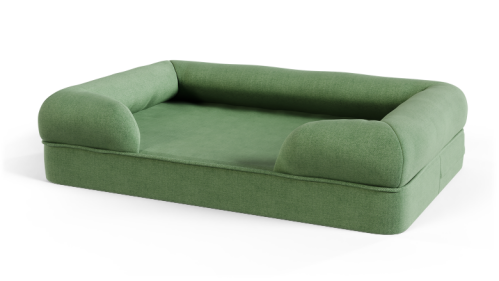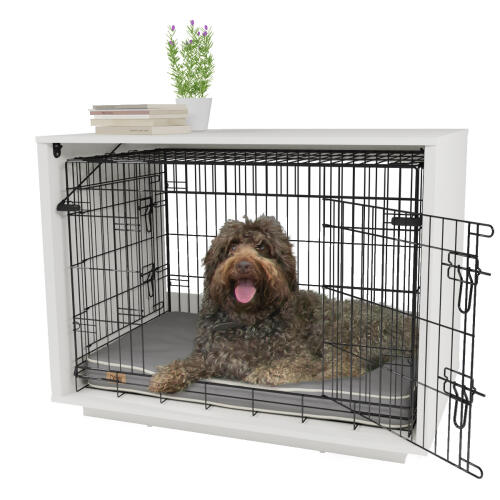Bichon Frise hund






History
The Bichon Frise originated in the Mediterranean by crossing large water dogs with small white dogs to produce a family of dogs known as Barbichons (later called Bichons). Four types were produced, the Maltese, Havanese, Bolognese and Tenerife. It is believed that the Bichon Frise was developed from the Tenerife types and were brought to Italy by sailors and soon became popular with the upper classes. Over the years they lost favour, but became a form favourite with lower classes as they were excellent dogs for tricks and were often used by street performers.
Behaviour
The Bichon is a friendly, playful dog that loves human company. They make wonderful pets and are friendly with strangers, other dogs and pets (usually). They like to be the centre of attention and will want to be with you as often as possible, therefore dislike being left alone. Their playful nature makes them good pets for respectful children. They can become destructive in the home, and themselves, if they are bored, so best if they have someone around for most of the day. They are sensitive to your mood and responsive to changing situations. These little dogs have a good sense of hearing and will bark at the slightest thing. They like to bark and are good at it, so early training is important to prevent neighbours complaining. However they make good watchdogs and are always alert. Training is important as these dogs are clever and like to learn. Best to start early and continue training often as they thrive on the contact they receive and will want to please you. They need a moderate amount of exercise in the form of short walks, but are just happy to be with you on walks to the shops, out in the car etc, as long as there are people around the breed will be happy. They will happily cuddle up to you and want to be close.
Bichons are classed as hypoallergenic dogs, whereby the coat and dander tend not to moult (they do shed fur but it tends to stick to itself). Regular brushing and stripping will prevent matting. Many owners opt for the puppy cut where by the coat is trimmed very short. Health wise, they can suffer Patellar luxation and some allergies. They are notoriously difficult to house train.
Temperament
The Bichon Frise has a very sociable and dependent temperament. They hate to be left alone so if you are out the house for long periods this may not be the dog for you. They are high energy playful dogs that will do well with children and other pets but may prove difficult to house train.
If you give them a good amount of exercise daily and a loving spot on your sofa then you will soon have a friend for life.
Health Problems
Health problems that may affect Bichon Frises include patellar luxation (dislocation of the kneecap), eye disease and canine hip dysplasia (CHD). Coat maintenance is also very important with this breed and if left to its own devices it is very likely to result in skin problems for the dog.
Breed Details
- Status: Common
- Life Expectancy: 12 - 13 years
- Weight: 5 - 10 kg
- Højde: 9.5 - 11.5"
- Rare: Nej
- Coat: Medium - Hypoallergenic
- Grooming Requirements: Everyday
- Town or Country: Either
- Minimum Home Size: Flat
- Minimum Garden Size: No Garden
- Breed Type: Toy Dog
- Størrelse: Lille
- Energy Level: Høj
Billeder af Bichon Frise
